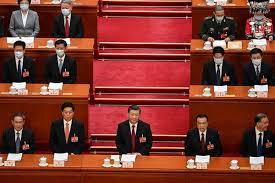U.S. Congress Targets Capital Funding China’s Military Amid Growing Scrutiny
The committee’s efforts come in the wake of previous attempts to curb U.S. investments into specific Chinese industries, with recent focus on the House’s legislative push to essentially ban TikTok unless its Chinese parent company, ByteDance, divests the popular social media platform. Additionally, a report by the committee highlighted U.S. venture capital firms investing billions into Chinese companies accused of supporting China’s military, surveillance state, and alleged Uyghur genocide.
While previous attempts at legislation faced hurdles, bipartisan agreement on being tough on Beijing has persisted. Although comprehensive restrictions on investments in China have been challenging to pass, recent executive orders and proposed legislation reflect ongoing efforts to address national security concerns regarding U.S. investments in advanced Chinese technology.
Despite challenges, there are expectations for increased transparency in U.S. investments related to quantum computing and artificial intelligence, with potential legislative action on companies with military-industrial ties or connections to sanctions. While U.S. institutional investment in China has slowed due to regulatory uncertainties, anticipation remains for a resumption once uncertainties are resolved.
In the complex landscape of U.S.-China relations, the scrutiny on capital flows into China underscores broader geopolitical tensions and the evolving dynamics of economic competition and national security.








